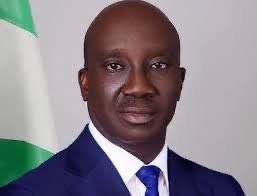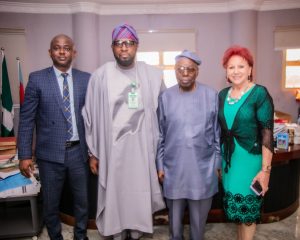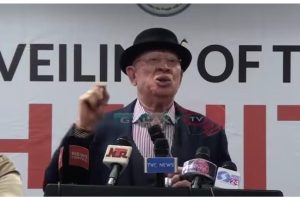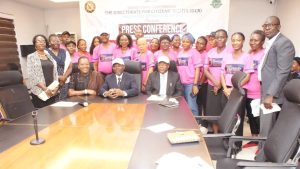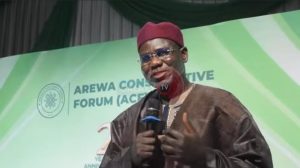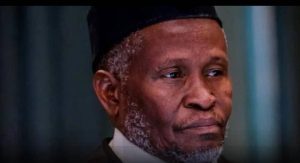Every 4th of February is celebrated as World’s Cancer day, globally. It is a day set aside to save millions of preventable deaths each year by raising awareness and education about cancer, and pressing governments and individuals across the world to take action against the disease.
The 2021’s theme “I am and I will” connotes an important message to all and sundry in the fight against cancer. Against this background, it is imperative to raise awareness of cancer by encouraging its prevention, early detection, treatment and general advocacy, with the onus lying on the Government, health workers, individuals, Non-Governmental organization and necessary Stakeholders to declare a state of emergency in the fight against cancer.

World Cancer day focuses on saving millions of preventable deaths, and this year’s, 2021, is a significant celebration due to the second wave of Covid-19 that has necessitated the locking down of nations for the purpose of safety.
However, this year’s theme “I am and I will” is unique because it implies that whoever you are, your actions-big or small-will make lasting positive change because the world awaits that change to fight diseases with the belief that progress is possible.
According to the World Health Organization, (WHO), it is imperative that cancer services in the low-and middle-income countries need to be improved to avoid a 60 per cent increase in cancer cases over the next two decades, if the current trends continue.
WHO didn’t relent in its prediction as it further said the greatest increase which was an estimated 81 per cent in new cases would surface in-low and middle-income, where survival rates were currently at its lowest ebb.
In Nigeria, there are limited health resources that can help to combat diseases like cancer while health services are old, ill-fashioned, and archaic, not well equipped to prevent, diagnose and treat cancers.
There is no doubt that, if the people have un-interrupted access to primary health care and referral systems, cancer can be detected early, treated effectively and cured. It should be known that Cancer shouldn’t be seen as a death sentence for anyone.
Dr. Tedros Ghebreyesus, Director-General of WHO said: “at least seven million lives could be saved over the next decade by identifying the most appropriate science for each country’s situation. By establishing stronger cancer responses on universal health coverage and by mobilizing different stakeholders to work together.”
Meanwhile, Dr. Elisabete, Director of IARC noted that the past 50 years had seen tremendous advances in research on cancer prevention and treatment. “Deaths from cancer have been reduced.
“High-income countries have adopted prevention, early diagnosis and screening programmes, which together with better treatment; have contributed to an estimated 20 percent reduction in the probability of premature mortality between 2000 and 2005.
“Low-income countries only saw a reduction of five percent”.
In the area of research, Nigeria is still putting heads together to help the government in the fight against Cancer, as Statistics showed that about 10,000 cancer deaths are recorded annually in Nigeria while it is estimated that new cases ranging from 250,000 to 300,000.
To solve these apparent problem, individuals also need to take responsibility without leaving everything in the hands of government, alone.
Husbands should endeavor to examine their wives breast and report any lump detected immediately for early treatment while men should also report any discomfort immediately in their bodies.
According to WHO, there are wide range of proven interventions to prevent new cancer cases, and these include controlling tobacco use that is responsible for 25 percent of cancer deaths.
It doesn’t stop at that, vaccinating against hepatitis B to prevent liver cancer and eliminating cervical cancer by vaccinating against Human papillomavirus.
To win the war against cancer, all hands must be on deck to ensure it is fight to finish.






